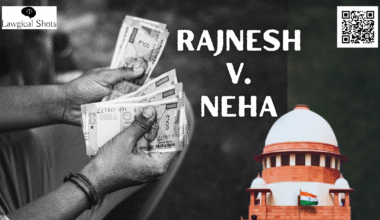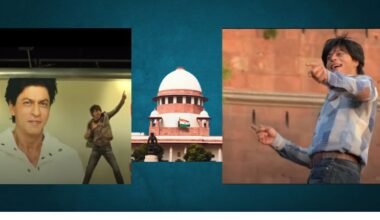Remember School days, when you would approach the teacher to inform that your best friend has been hurt by another classmate, and the teacher in turn scolds you saying “Can your friend not speak…..Why are you speaking on his behalf?”. That is the essence of the traditional Legal System, where you must be yourself hurt to initiate an action. However, the concept of Public Interest Litigation made a difference and the best friend is now allowed to speak on behalf of the hurt one. This can be understood with a short example – Let’s say a citizen observes that a lake in their city is illegally encroached upon and polluted by factories. If local authorities fail to act, the citizen can file a PIL in the High Court or Supreme Court seeking relief. To have a better understanding, let’s dive deeper into the ocean of locus standi and Public Interest Litigation.
What is Locus Standi?
Locus Standi is a Latin term which literally means the “place of standing”. In other words, it is “the right to bring an action or appear in court.” Traditional litigation requires that only a person whose legal right was directly violated could approach the Court for justice. It only allows an aggrieved party to approach the Court, ensuring that litigation was not misused by outsiders.
Example :- A’s property was illegally encroached by B. C cannot file a case on B on behalf of A because of the principle of locus standi. If C proves that he has sufficient direct interest in the property, he can file a lawsuit.
What is Public Interest Litigation (PIL)?
Public Interest Litigation is a legal mechanism that allows individuals or groups to approach the Higher Judiciary for matters concerning Public Interest. Unlike traditional litigation, where the petitioner must have a direct interest in the case to initiate a legal action, PIL enables any concerned citizen to seek redressal on behalf of the marginalized or disadvantaged Section of society.
Hussainara Khatoon v. State of Bihar (1979) is slated to be the founding stone for Public Interest Litigations in India, all thanks to the advocate Pushpa Kapila Hingorani whose action led the consideration for justice for undertrial prisoners. PIL has played a crucial role in ensuring social justice, environmental protection and human rights’ enforcement in India. It is primarily governed by Articles 32 and 226 of the Indian Constitution, which empower the Supreme Court and High Courts respectively to issue writs for enforcement of Fundamental Rights.
The concept of PIL gained prominence in India through Judicial Interpretations of Judges like Justice PN Bhagwati and Justice V. Krishna Iyer . Article 32 and Art 226 of Indian Constitution empowers Supreme Court and High Court to entertain PILs.
Who can File a PIL?
Unlike traditional lawsuits, where the petitioner must demonstrate a direct personal interest, the scope of filing a PIL is broader.
The person filing a PIL must comply with the following requisites:
- A PIL can be filed by a citizen of India;
- The Court must be satisfied that on behalf of the aggrieved persons, the citizen is filing a PIL.
- Public spirited individuals and social groups for enforcement of legal right or Constitutional right to any person who is not able to approach the court for redressal can also move the Courts.
- The person is a member of public acting bonafide and having sufficient interest in instituting an action for redressal of Public Wrong or Injury.
- He should not be merely a busybody or meddlesome interloper.
- His actions are not motivated by personal gain or any other ambiguous consideration.
Example :- A Person cannot file a PIL to obtain Partition in the ancestral property.
How does PIL relax Locus Standi?
Public Interest Litigation (PIL) relaxes the doctrine of locus standi by allowing individuals or groups who are not directly affected by an issue to approach the Court on behalf of those who are disadvantaged or unable to seek justice themselves. This relaxation is primarily aimed at ensuring access to justice for marginalized sections of the Society and addressing broader public concerns.
Why PIL is important in Legal System?
1. Expands the Scope of Petitioners – Traditionally, only an aggrieved party could approach the court (locus standi rule). PIL allows any public-spirited individual, NGO, or organization to file a petition in the interest of justice.
2. Focuses on Public Welfare – PIL is used to address human rights violations, environmental issues, corruption, and other matters affecting a large section of society rather than just an individual grievance.
3. Allows Suo Motu Action by Courts – Courts can take up matters on their own without requiring a petitioner, further relaxing the locus standi rule.
4. Reduces Formalities – PIL petitions can be filed through simple letters or representations, bypassing strict procedural rules.
5. Judicial Activism – Courts proactively interpret the law to promote social justice and constitutional values, extending the reach of justice to those who cannot access courts.
PIL and Locus Standi – Landmark Cases
1. In the case of Rural Litigation of Entitlement Kendra , Dehradun Vs State of Uttar Pradesh (1985), the Supreme Court accepted a letter as a PIL regarding illegal mining in Mussoorie Hills, highlighting that even informal communication can be accepted as a PIL if it raises a significant public interest.
2. In the case of Mumbai kamgar Sabha Vs Abdulbhai Faizullabhai (1976), the Mumbai Kamgar Sabha filed a petition on behalf of the workers against the organization regarding bonus of the workers. Justice Krishna Iyer has held that the Union is eligible to file a petition on behalf of the workers as it affected the weaker sections of the society. It was one of the first cases when locus Standi was relaxed.
Landmark Judgments on Impact of Public Interest Litigation
SP Gupta Vs Union Of India (1982)
The Supreme Court liberalised Locus Standi and allowed any public spirited Individual to file PIL on behalf of the disadvantaged sections. In this case, petitions filed by advocates were admitted as they are an integral part of the Indian Judicial System. Until this case, Locus Standi was relaxed on a case to case basis. In this case, relaxation of Locus Standi in PIL was fully established. It was held that wherever there is a violation of Legal right, PIL became an important tool to seek justice.
People’s Union for Democratic Rights v. Union of India (1982)
PUDL is an organization which filed a PIL against the Poor conditions of workers especially in construction sites. It was alleged that Labours were paid below the minimum wages and subject to inhumane working conditions. The Supreme Court emphasized that the State cannot escape responsibility for violations of labor laws even if private contractors are involved.
MC Mehta Vs Union Of India (1986)
This case is popularly known as the Oleum Gas Leak Case. M.C. Mehta, a Public Interest Lawyer, filed a PIL in the Supreme Court, seeking closure of hazardous industries near populated areas. The Apex Court directed industries to adopt stringent safety measures and consider shifting hazardous industries away from densely populated areas. The State and Private Enterprises were held responsible for ensuring environmental safety, even if economic development was affected. It became precedent for subsequent environmental PILs, including Ganga pollution and Air Pollution cases. This case remains one of the most important judgments in Indian environmental law, ensuring corporate accountability and stronger environmental governance.
Vishaka & Ors Vs State of Rajasthan (1997)
A PIL was a class action filed by a Women’s rights group, social activists and NGOs after the brutal gang rape of Bhanwari Devi, a social worker in Rajasthan who was trying to prevent child marriage. The Apex Court laid down guidelines by defining Sexual Harassment and made employer responsible for ensuring a safe work environment. This case recognized women’s dignity as a constitutional right under Article 21 and remains as a milestone in gender justice and Human rights protection in India. It led to the enactment of the Sexual Harassment of Women at Workplace (Prevention, Prohibition and Redressal) Act, 2013 which is the first legal framework for sexual harassment in India.
National Legal Services Authority v. Union of India (2014)
The petition sought recognition of transgender people as a third gender and highlighted the need for them to be treated with dignity and equality. It also called for legal recognition of the rights of transgender persons, especially in areas such as education, employment, health, and family rights, which were often violated or overlooked. The PIL emphasized that the right to legal aid should be extended to transgender individuals as per the provisions of NALSA, ensuring their access to justice and legal protection. This case remains one of the most significant PIL judgments in Indian legal history, shaping the trajectory for transgender rights in India.
Anoop Baranwal v. Union Of India (2023)
Anoop Baranwal filed a PIL challenging the constitutionality of the process of appointment of the Chief Election Commissioner and Election Commissioners in India. He argued that the existing system, where the President appoints these officials based on the Prime Minister’s recommendations, compromised the independence and impartiality of the Election Commission of India (ECI).
The Apex Court held that the current appointing authority, which was solely vested in the hands of the Executive, was unconstitutional. The Court directed that a three-member committee, comprising the Prime Minister, the Leader of the Opposition, and the Chief Justice of India, should recommend appointments to the President.
Conclusion
Public Interest Litigation is a vital tool in ensuring justice for the masses, especially for those who do not have access to the formal legal system. It enables citizens to act as watchdogs and holds both the State and Private entities accountable. Its significance in safeguarding human rights, promoting social reforms, and ensuring the protection of public welfare cannot be overstated. PILs empower citizens to be active participants in the democratic process, making the legal system more accessible and responsive to the needs of society.
The concept of PIL and locus standi has been simplified and explained by our Intern, Mr. Ramachandra Achanta, who is is assisting the team at Lawgical Shots with his research and writing skills.








